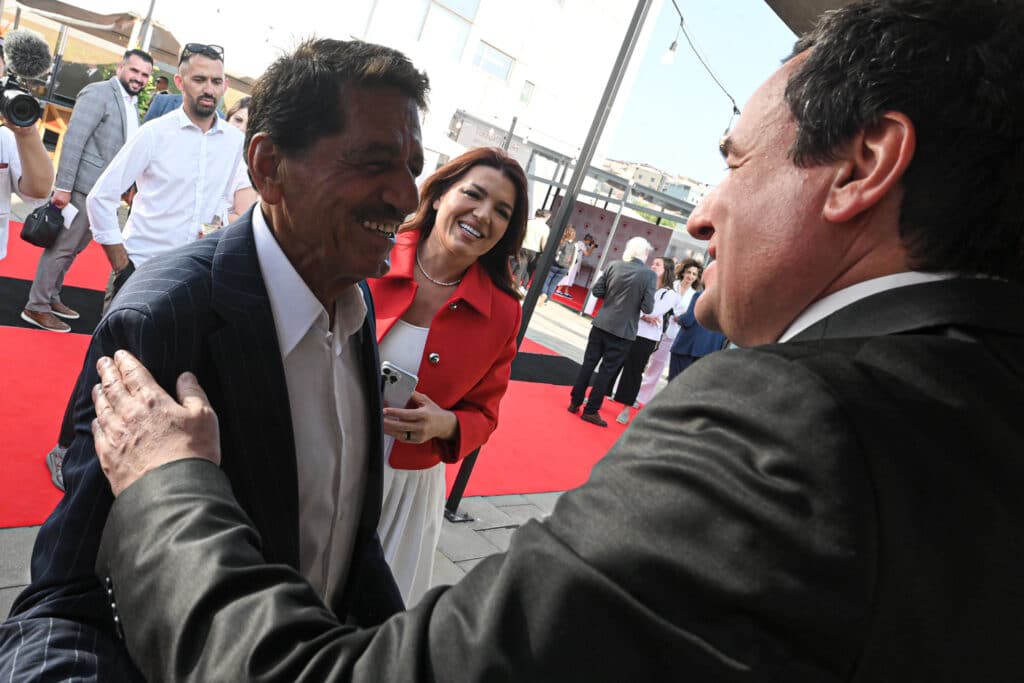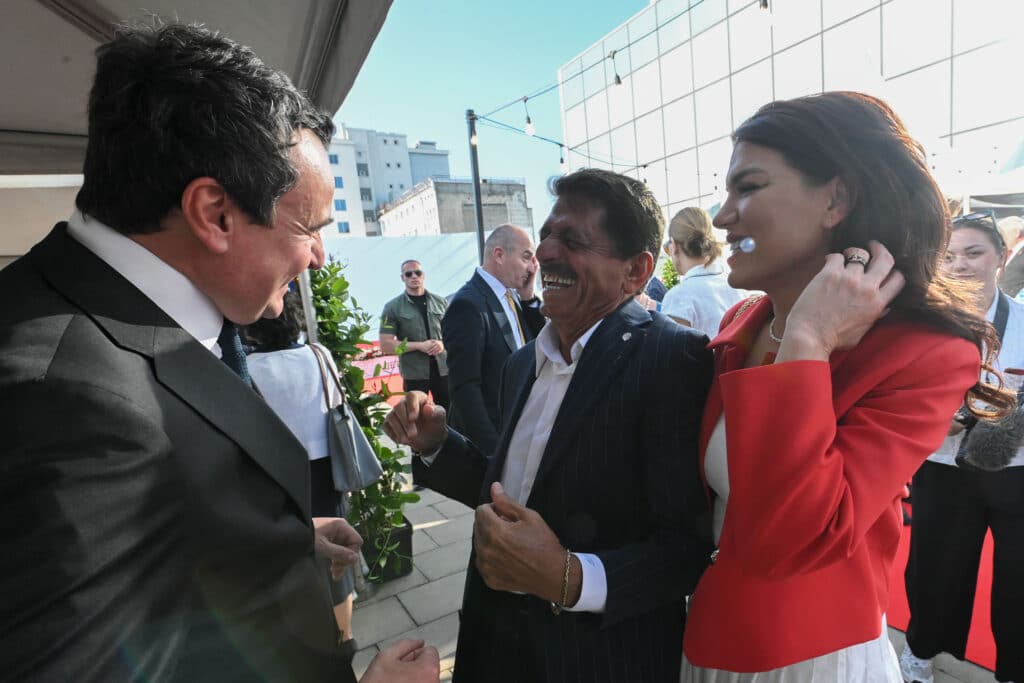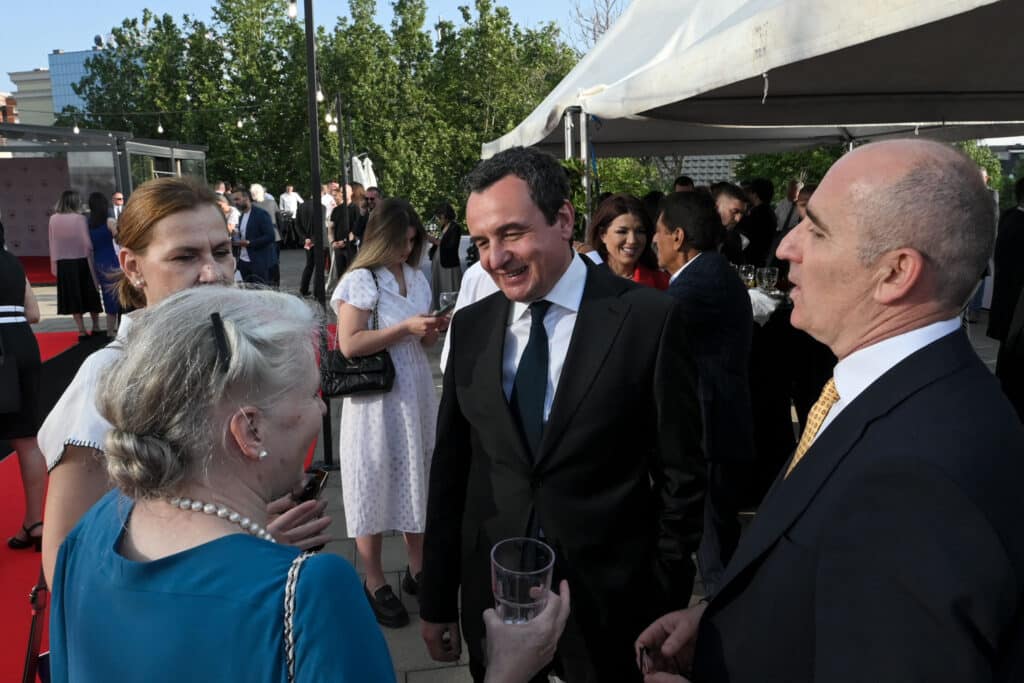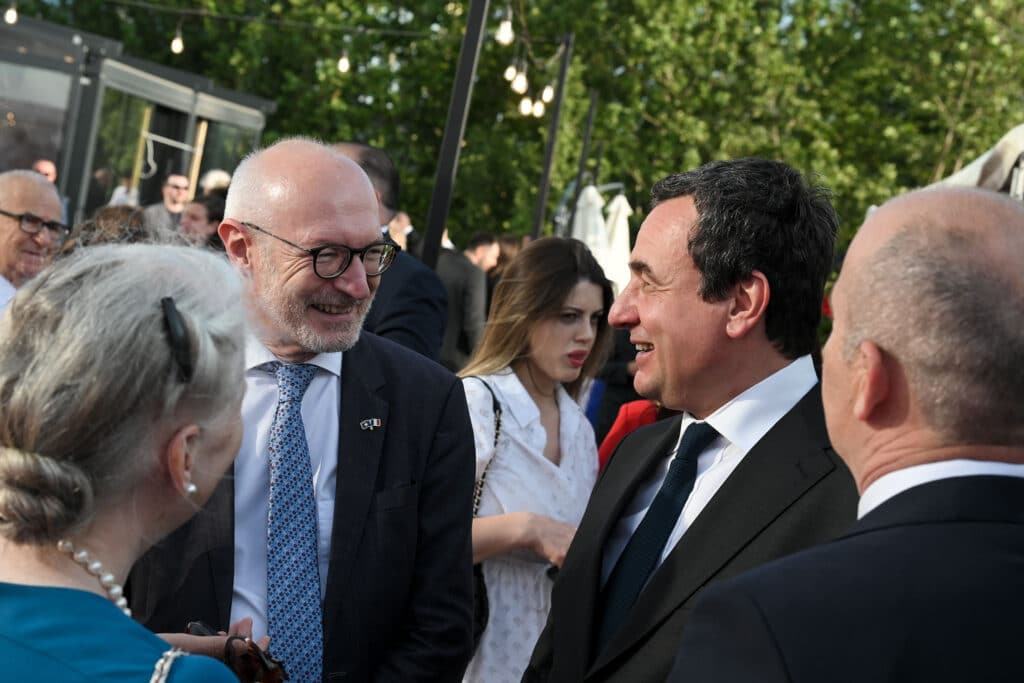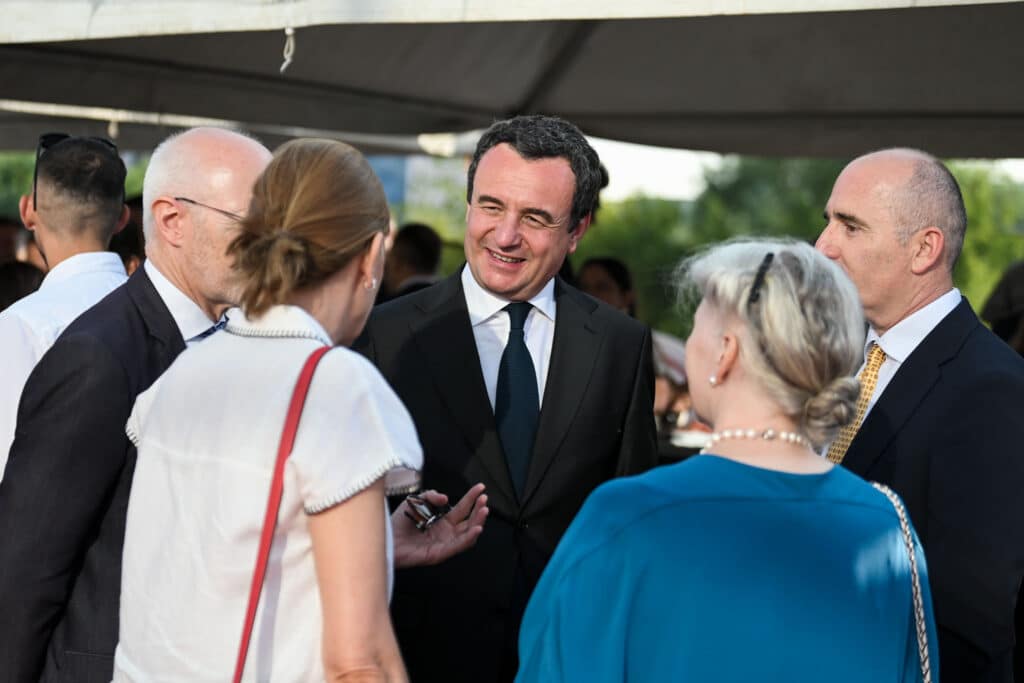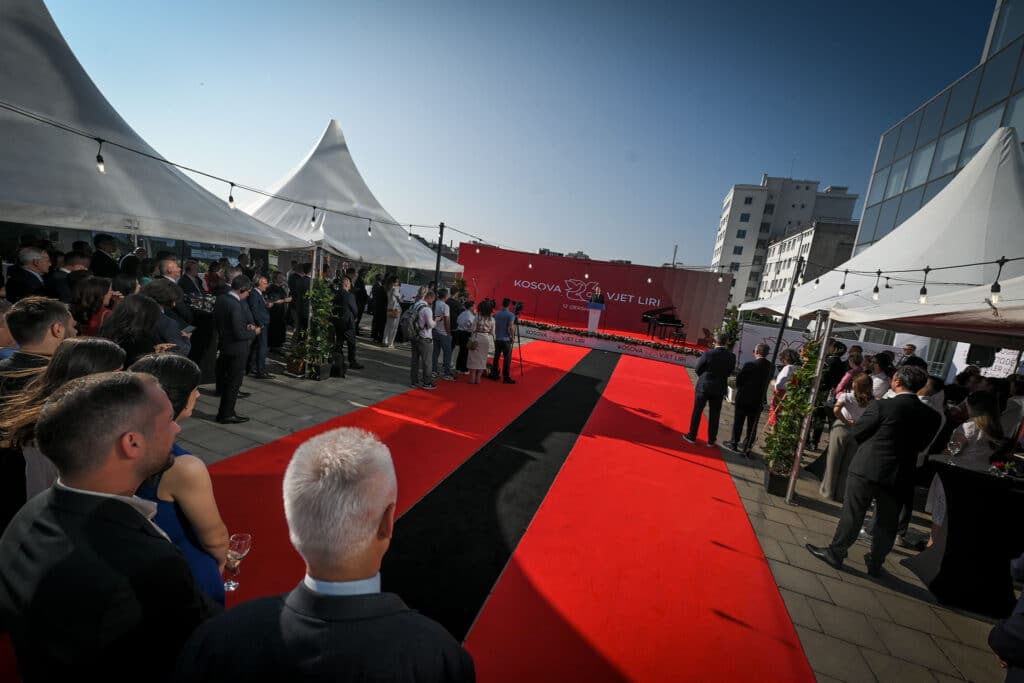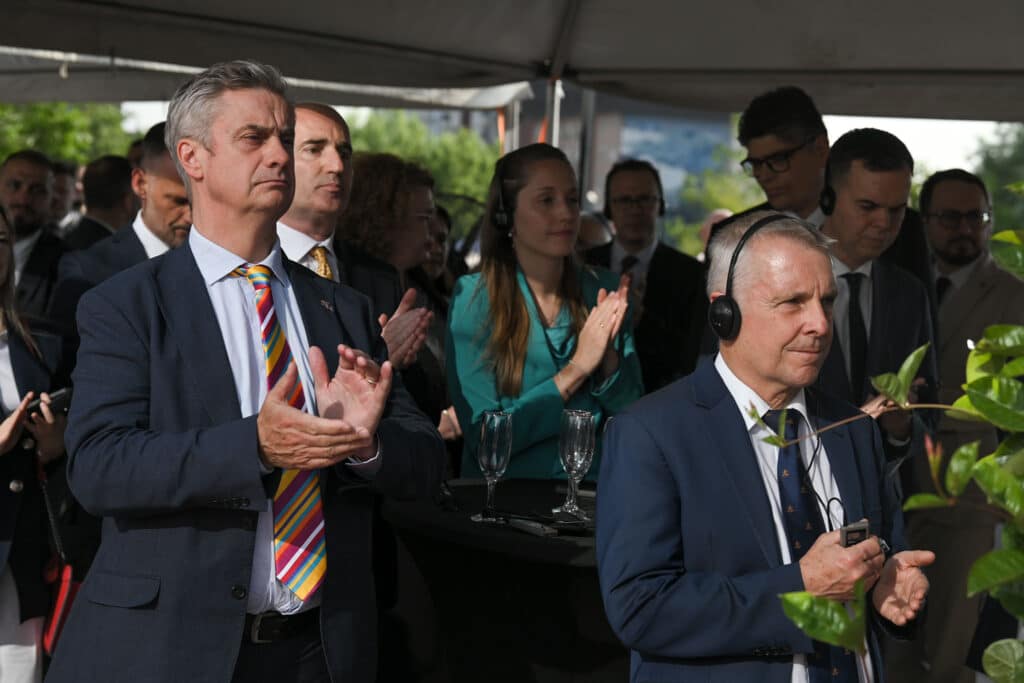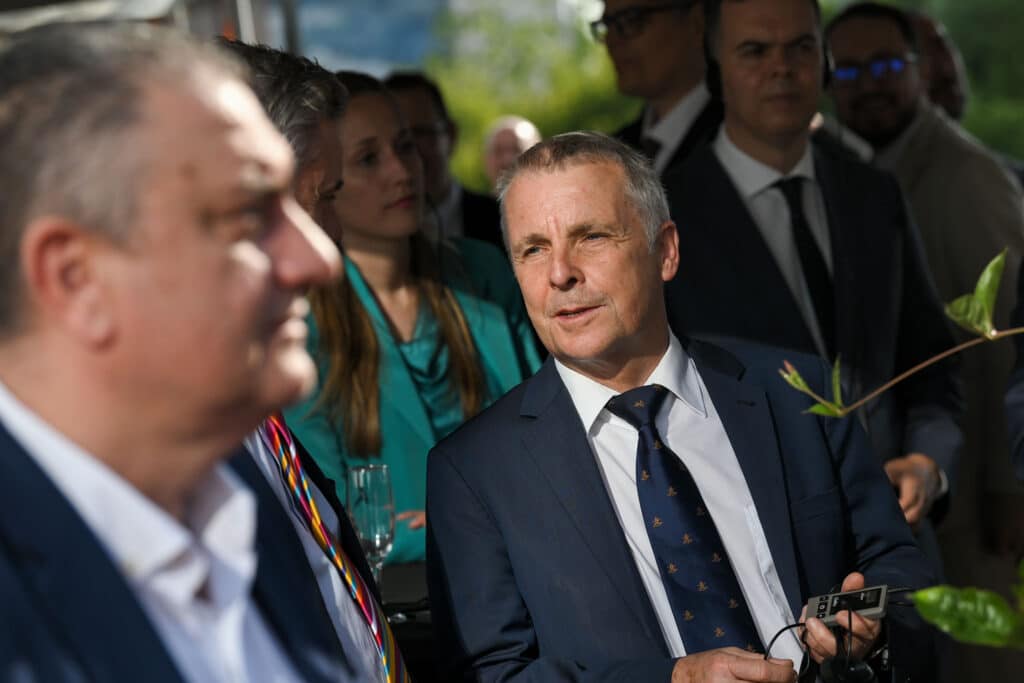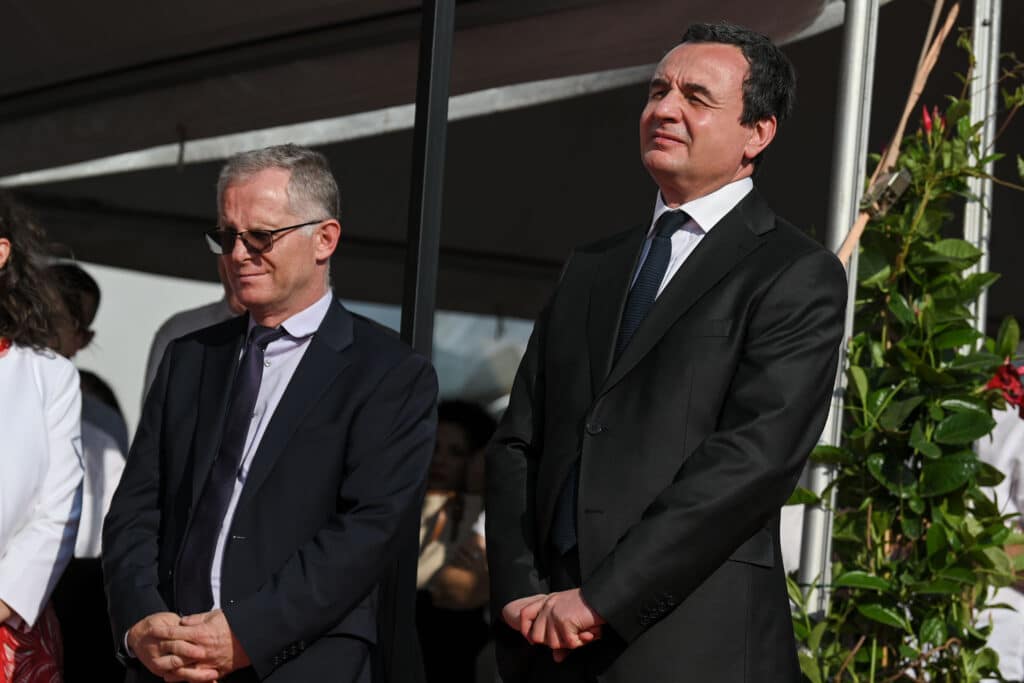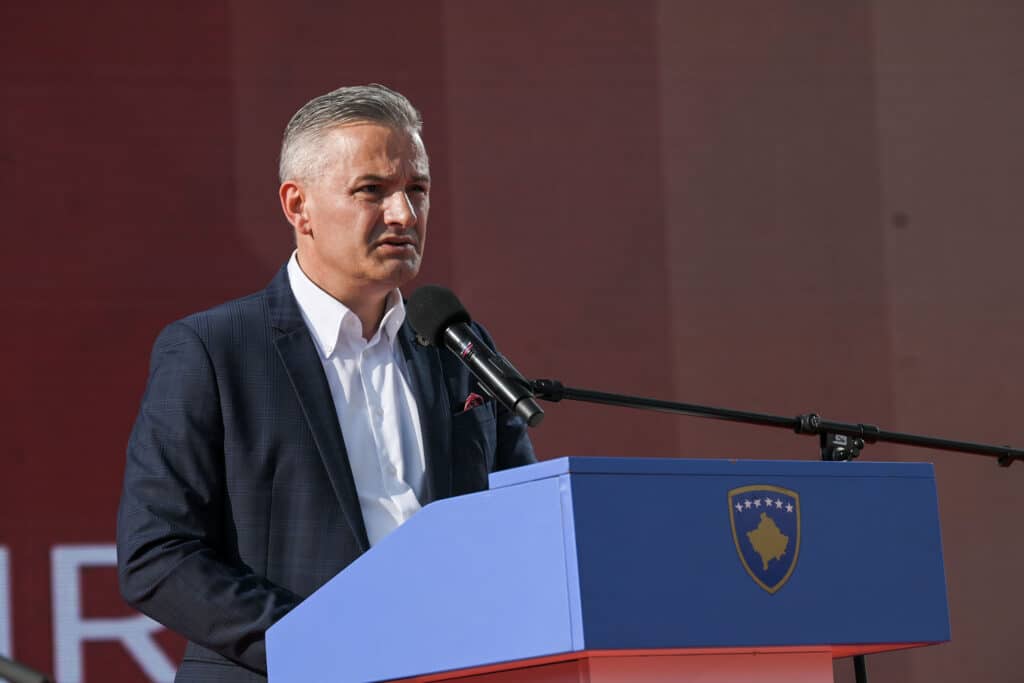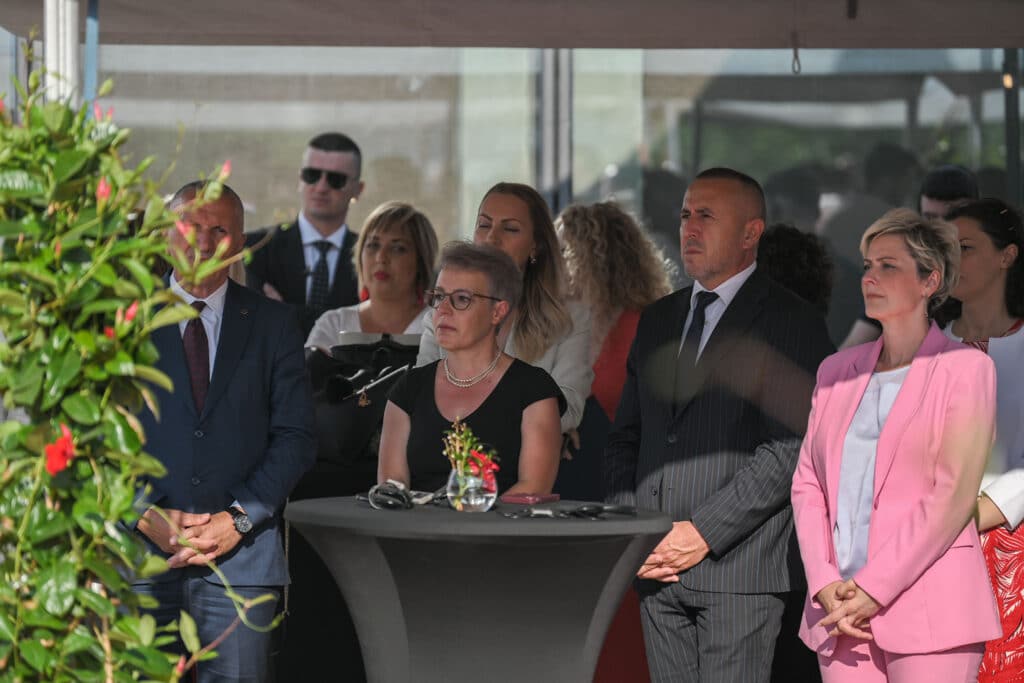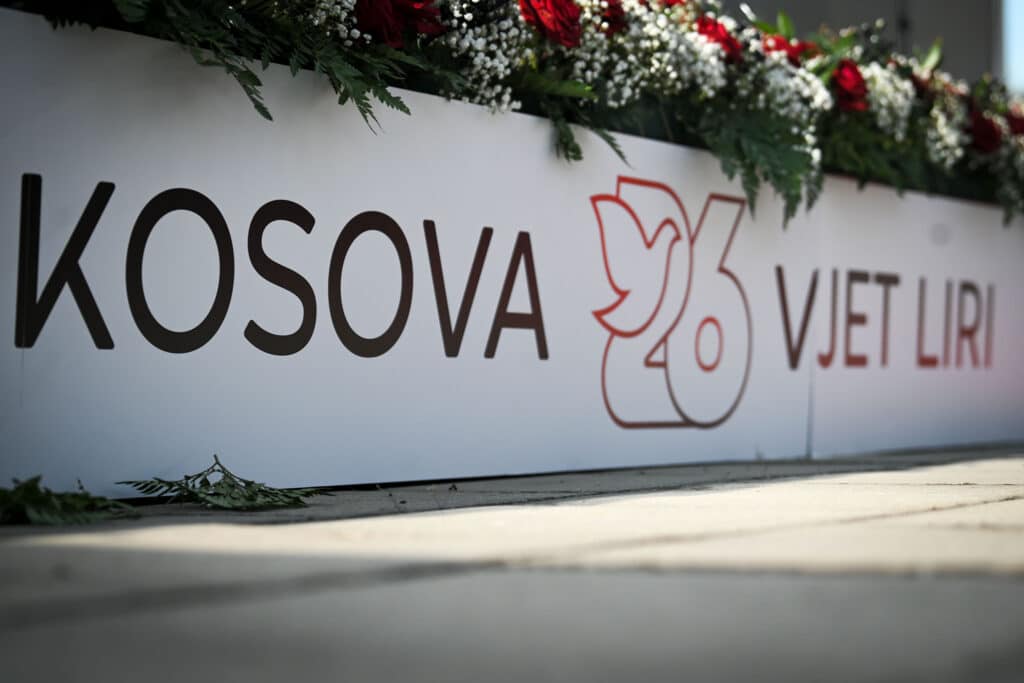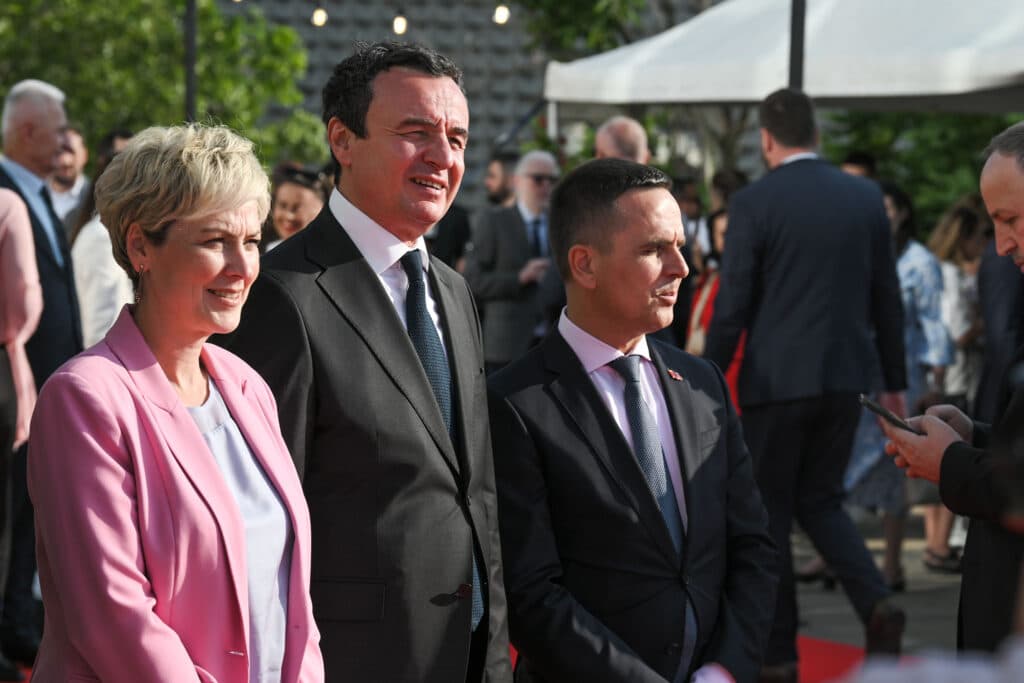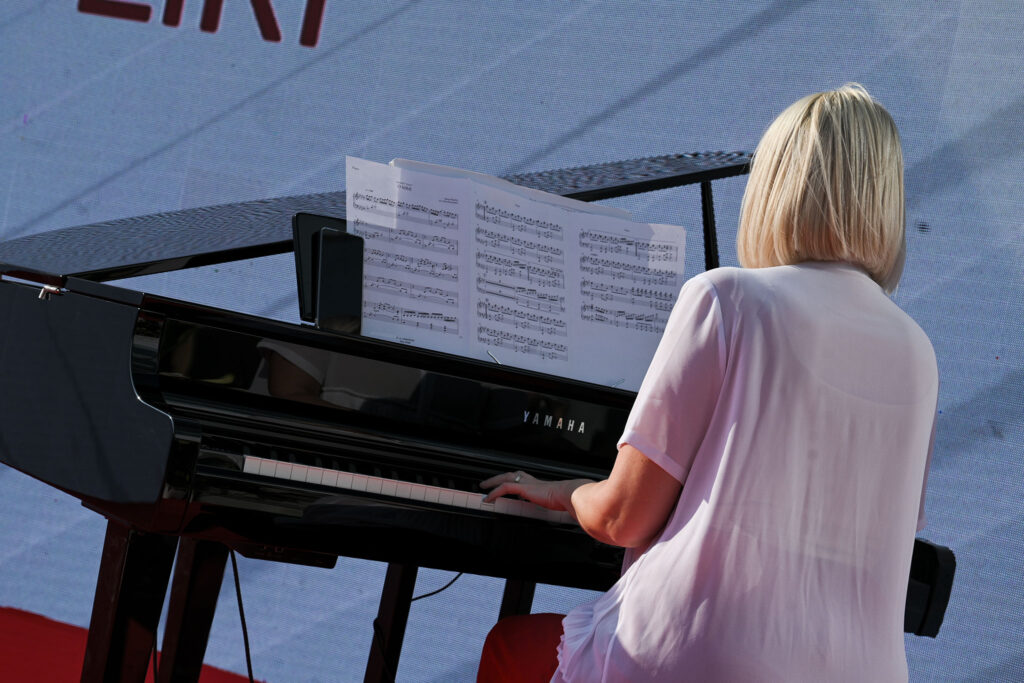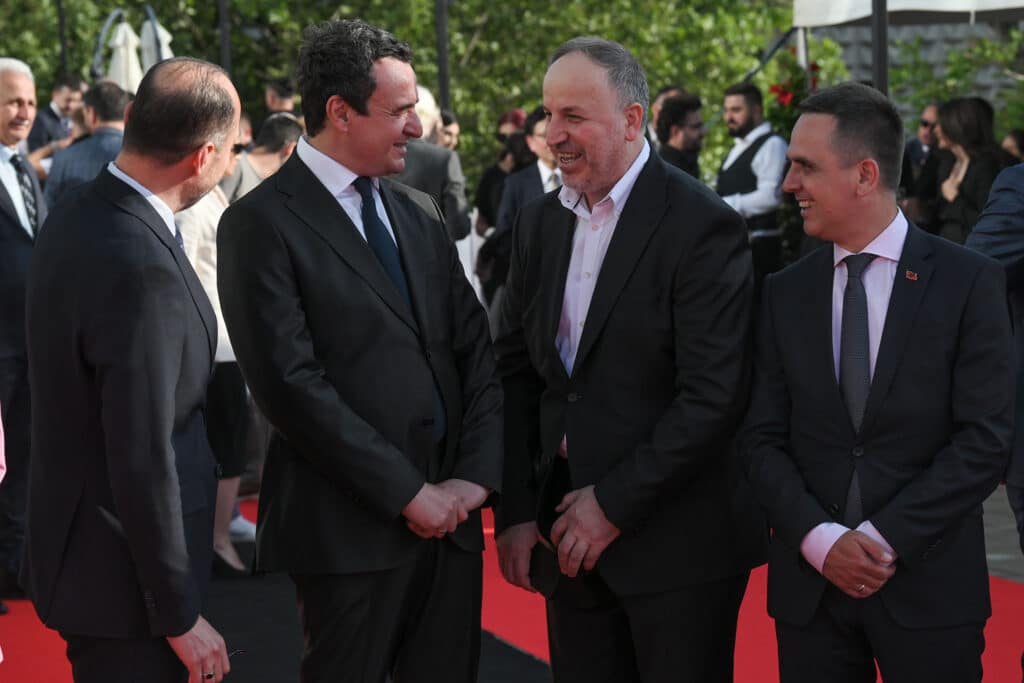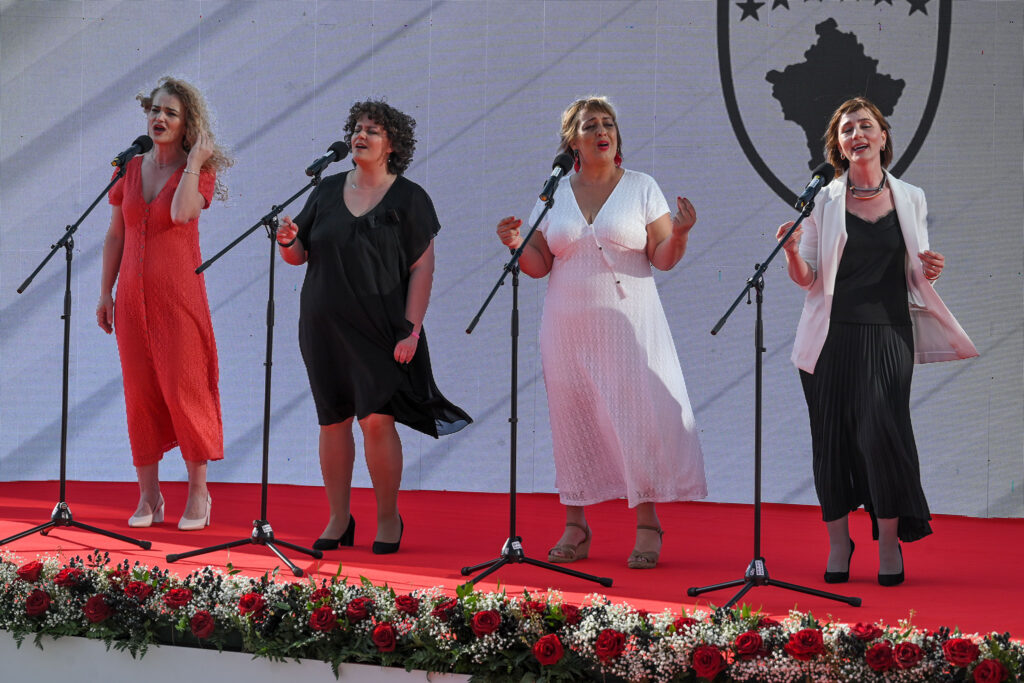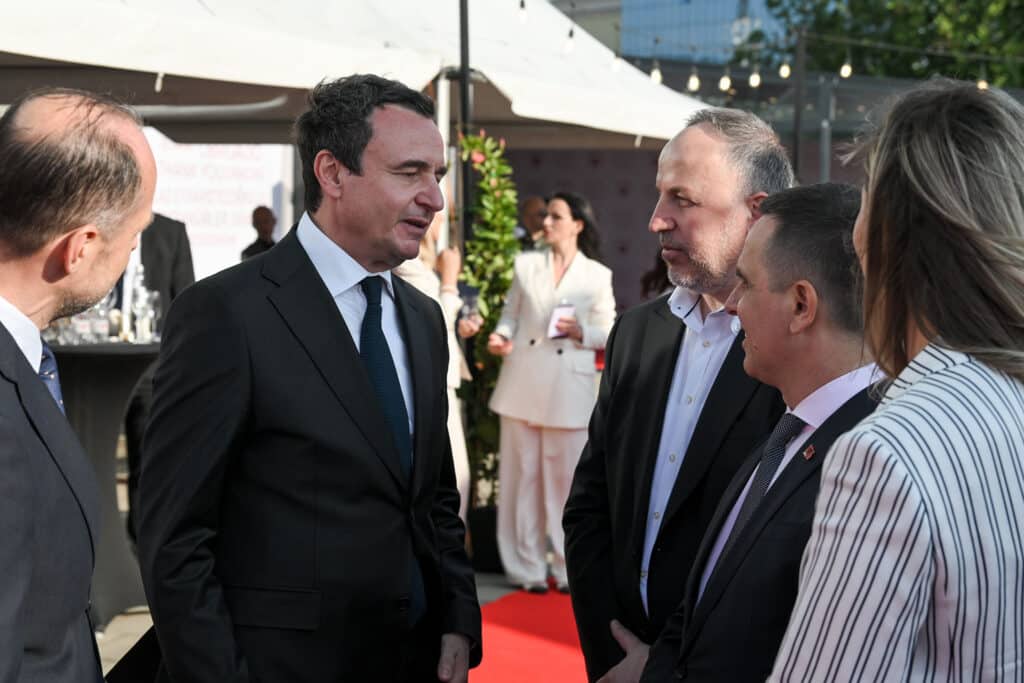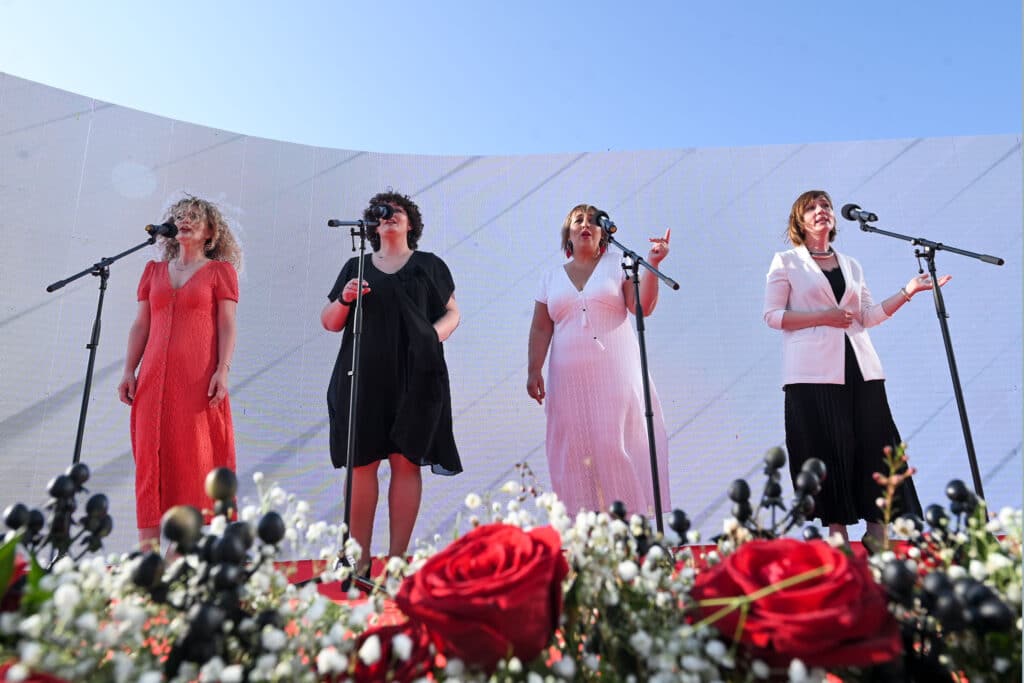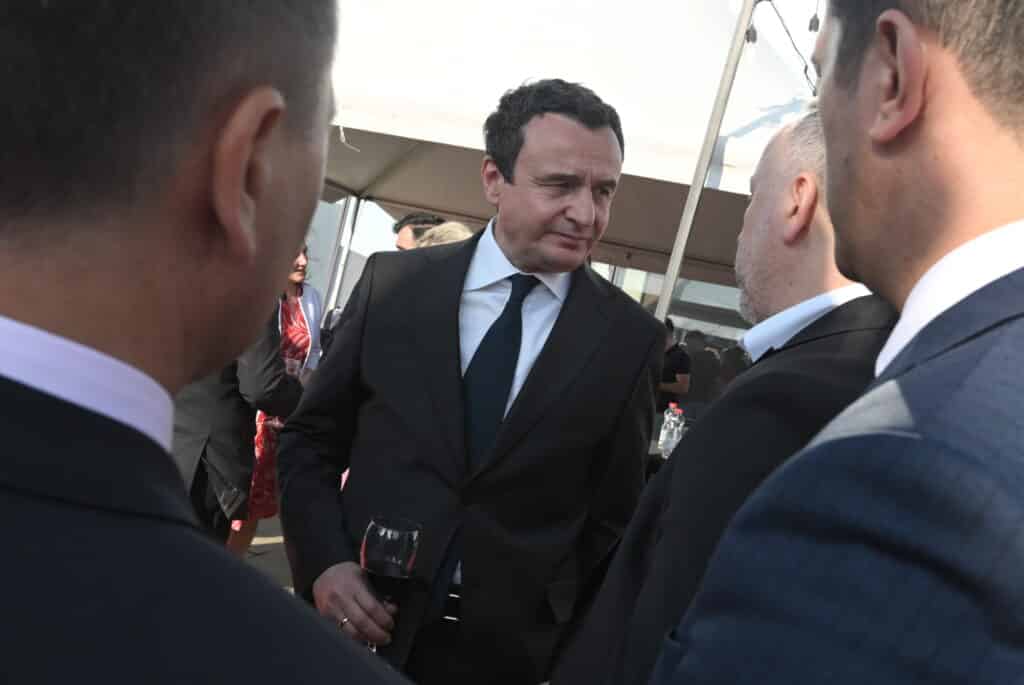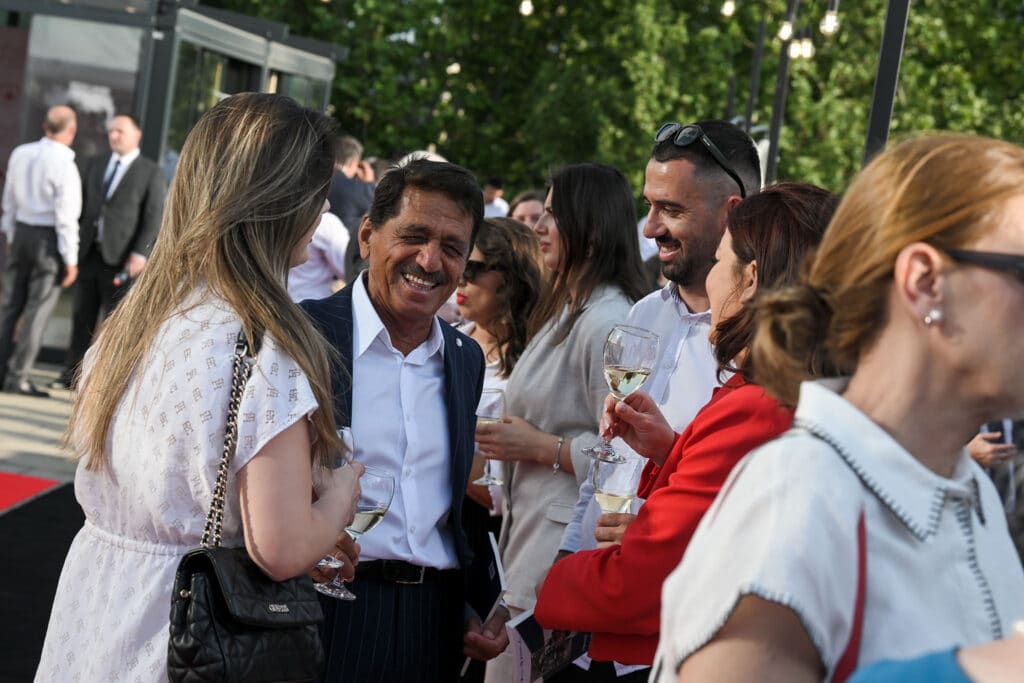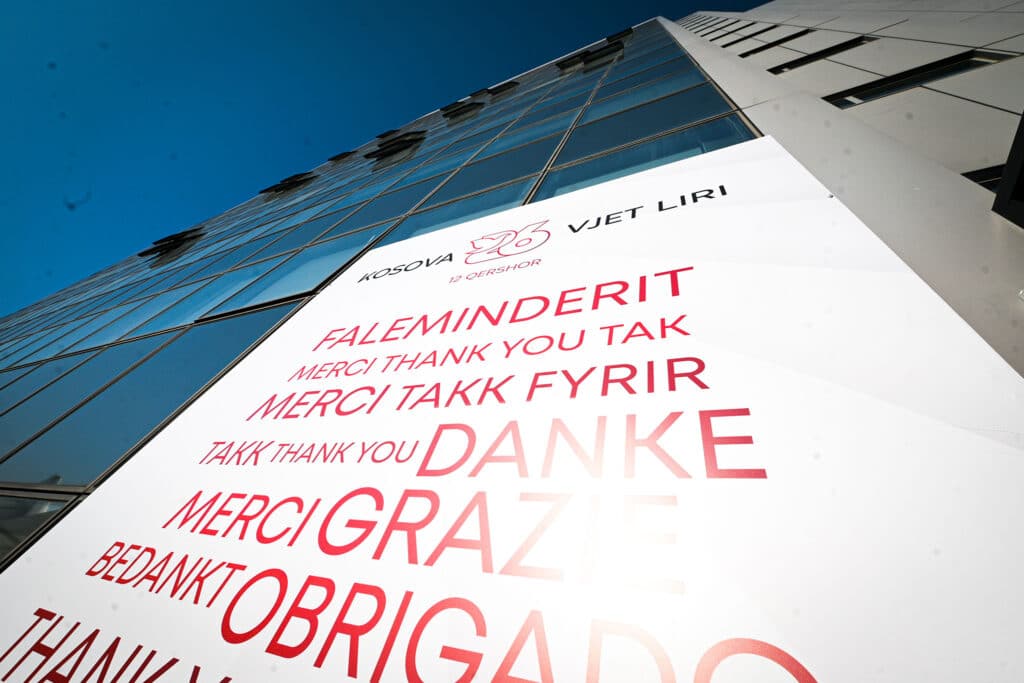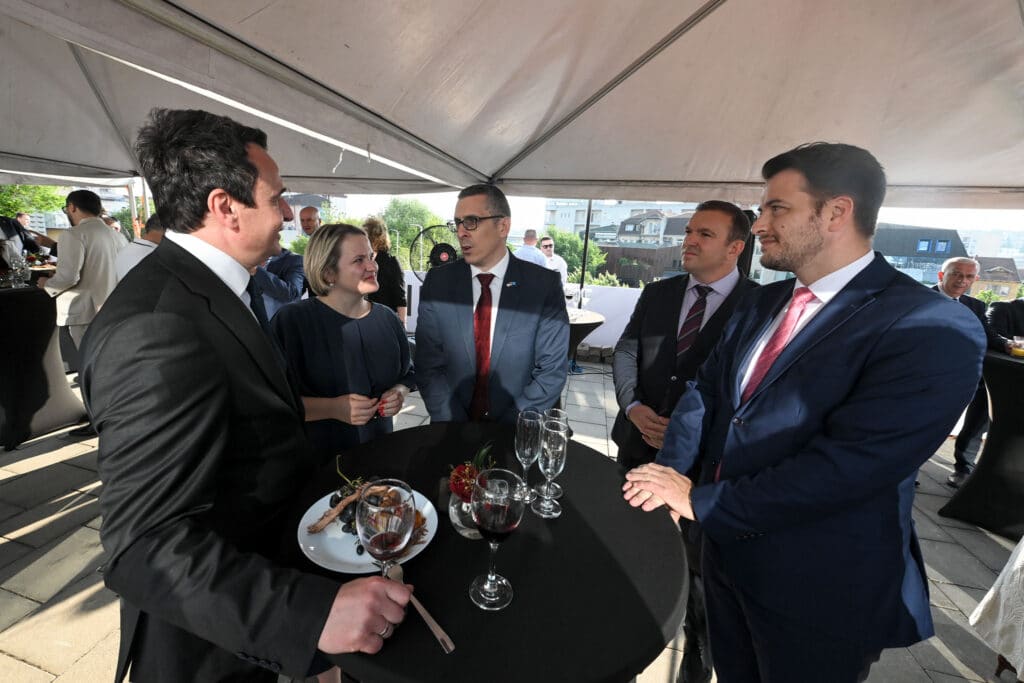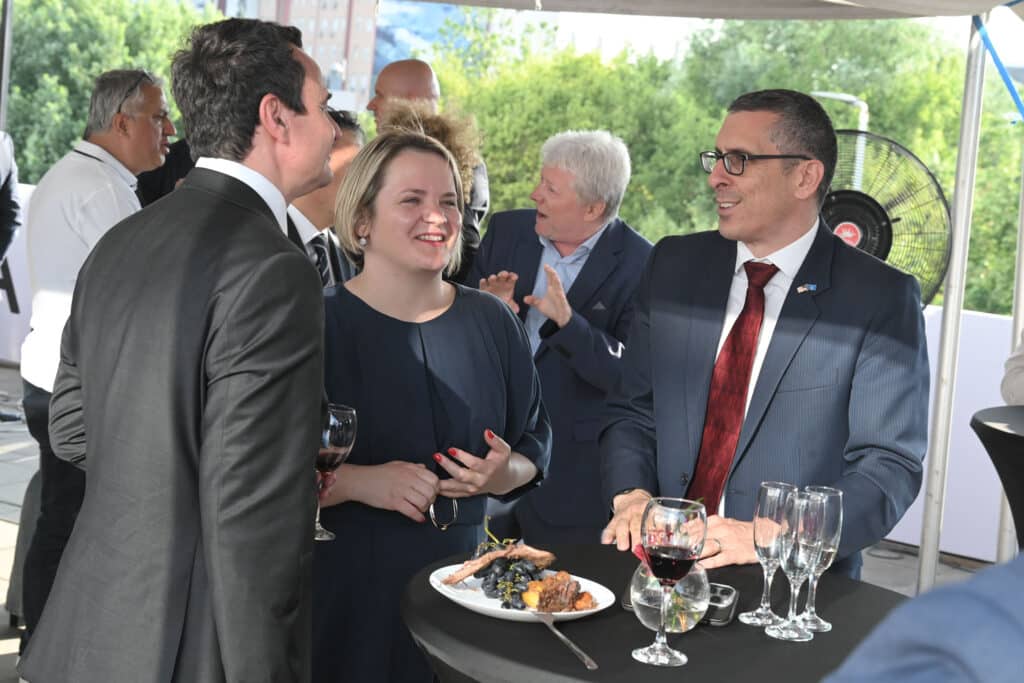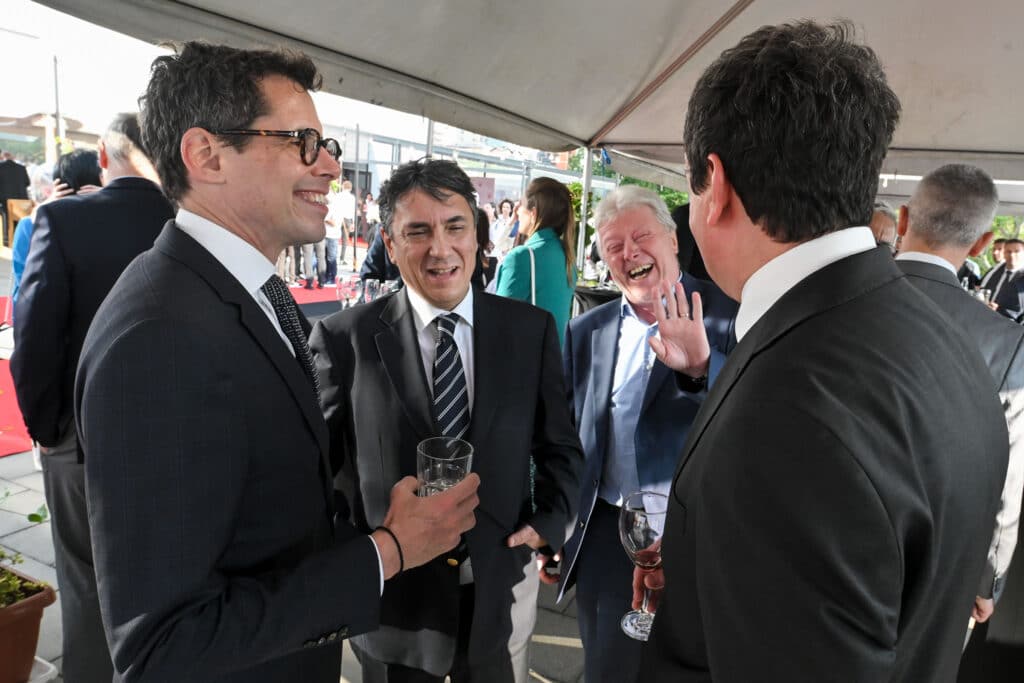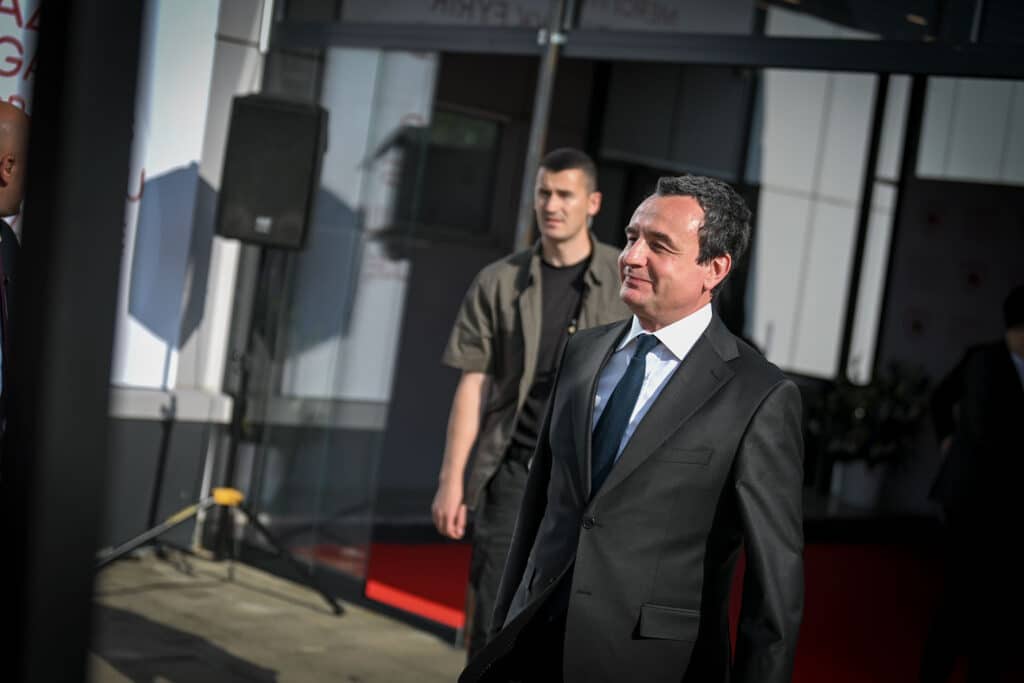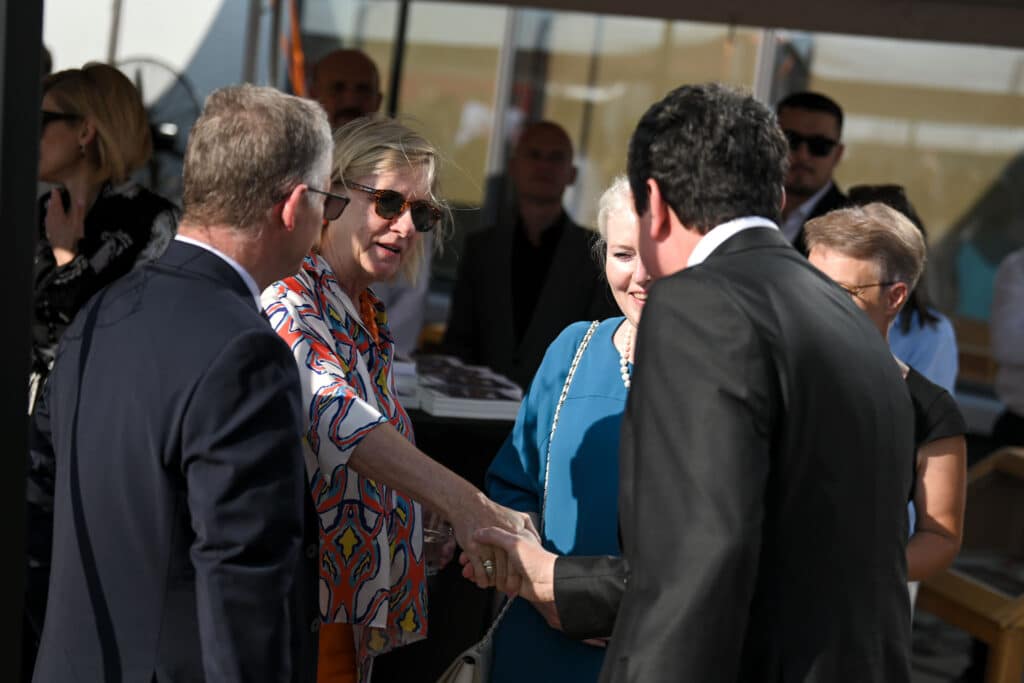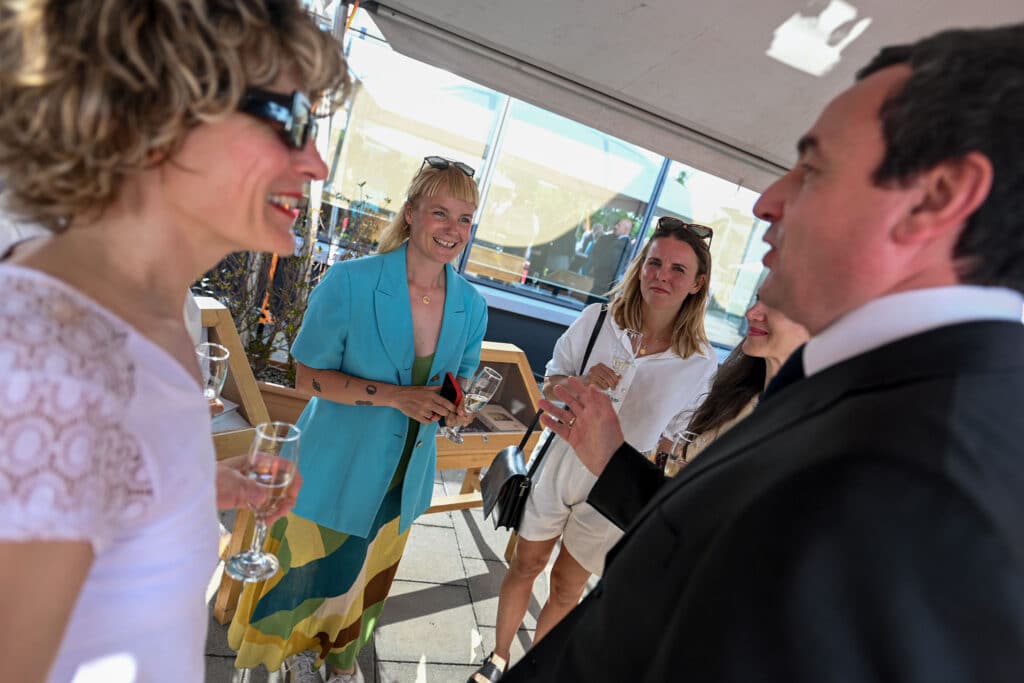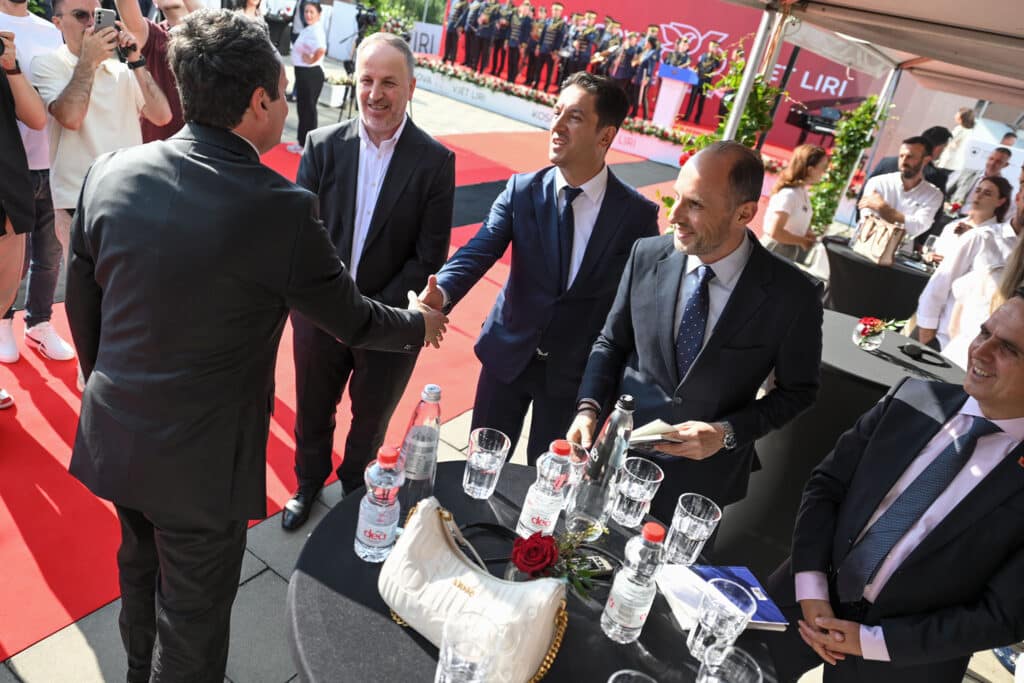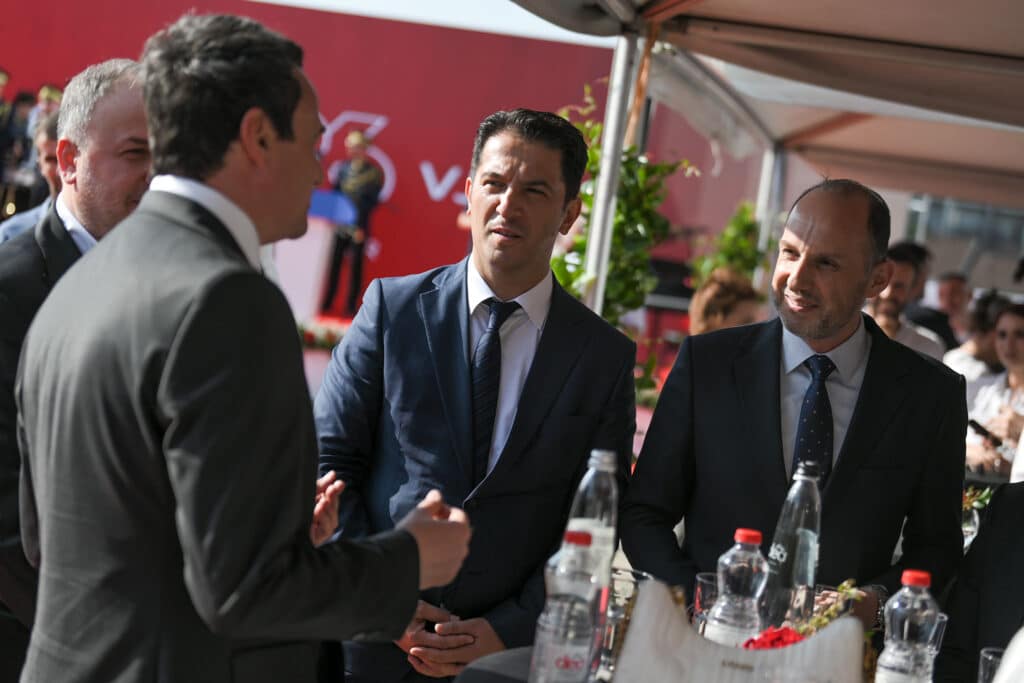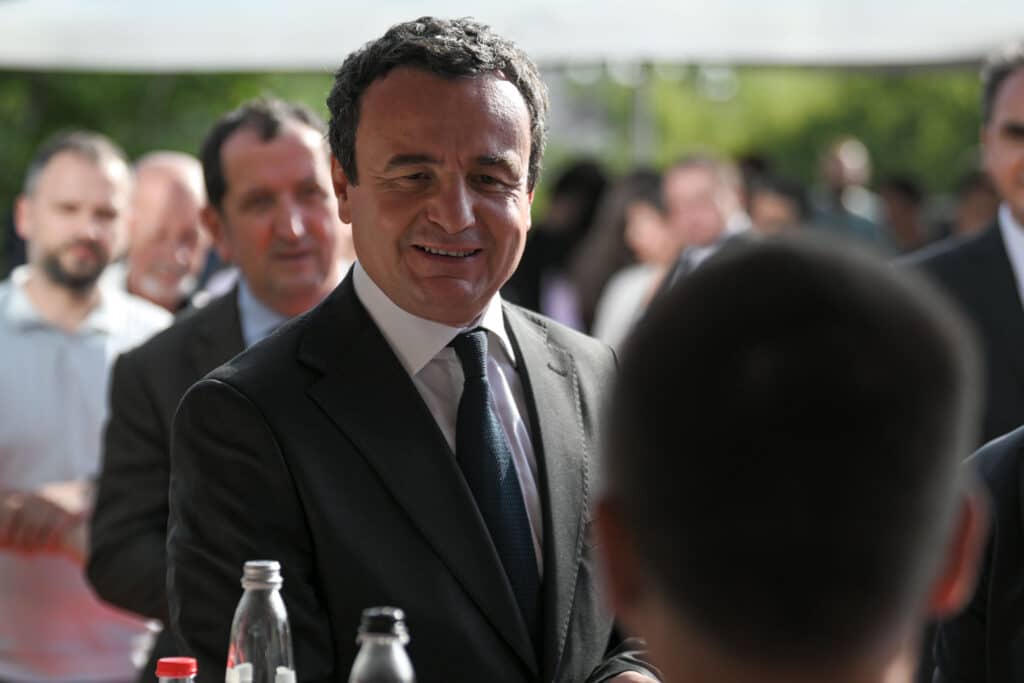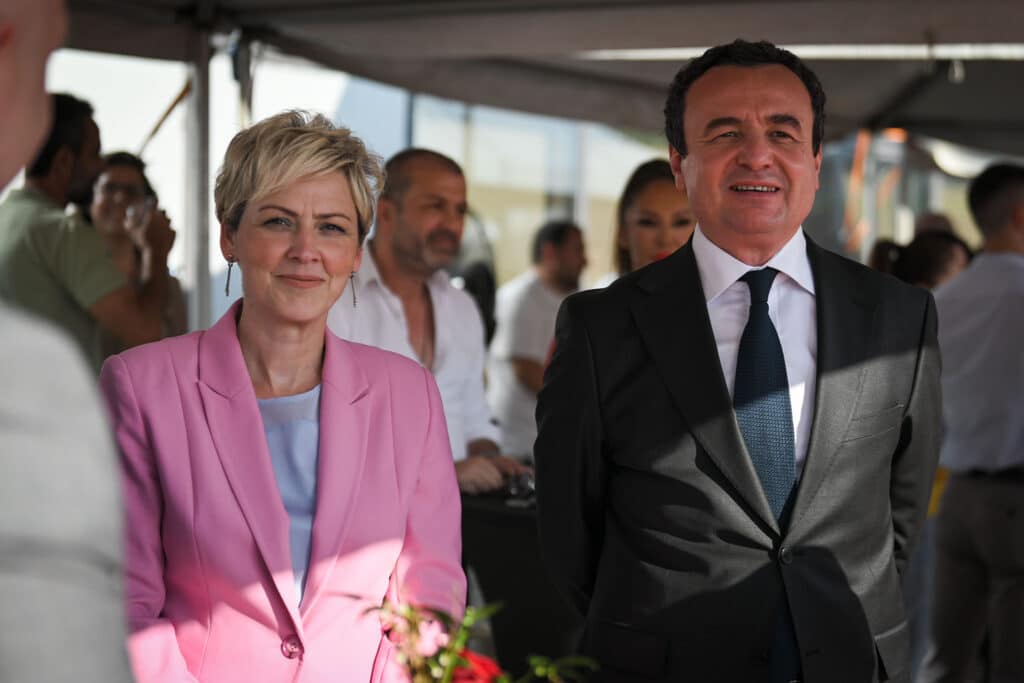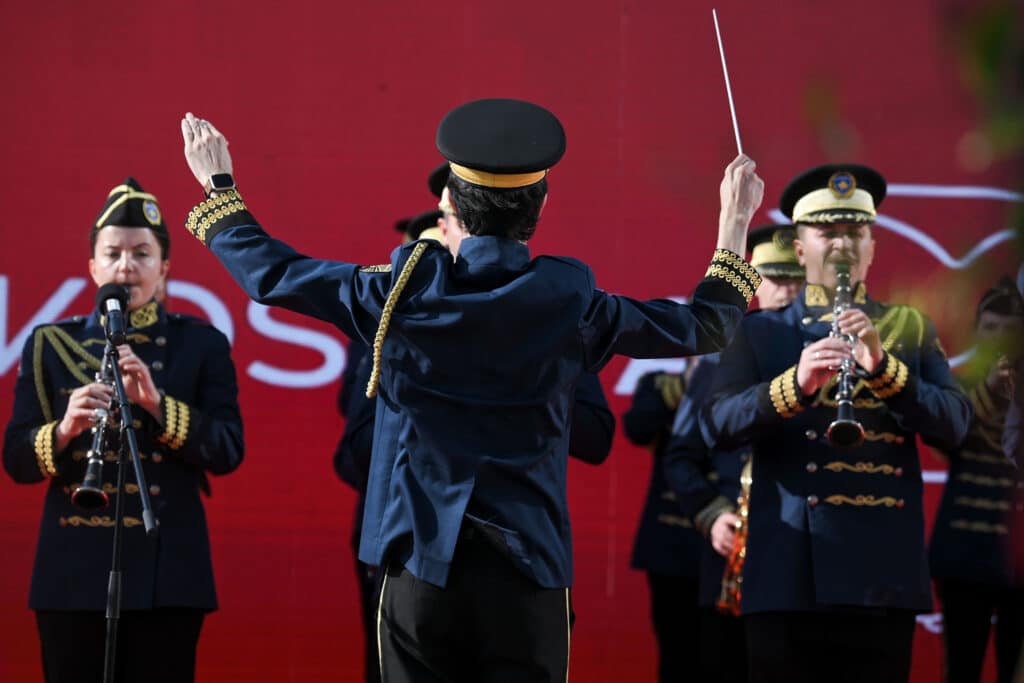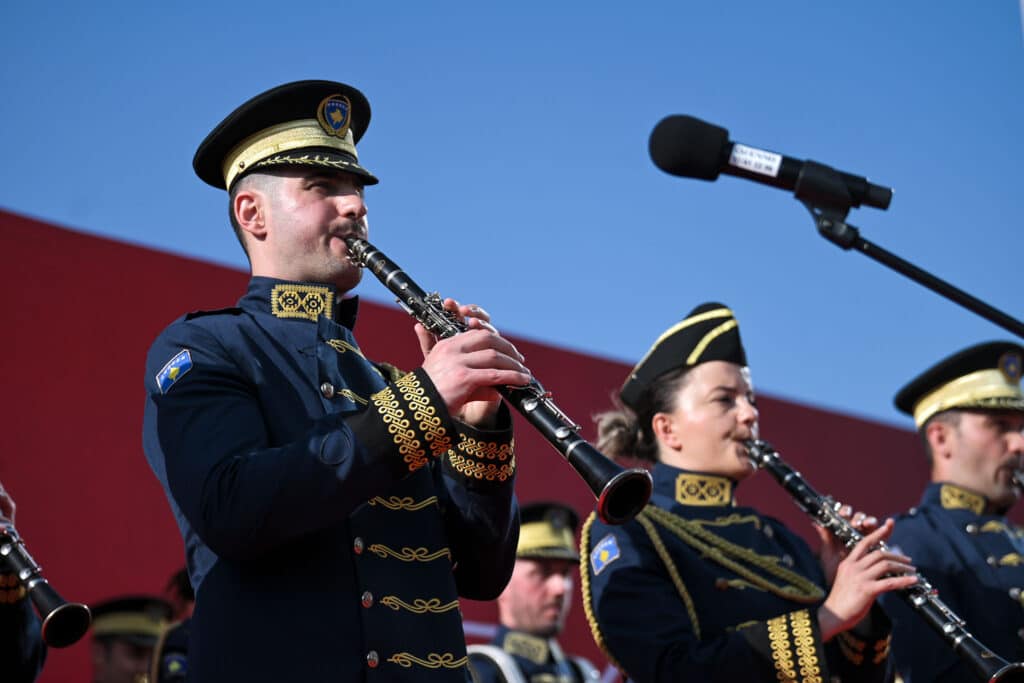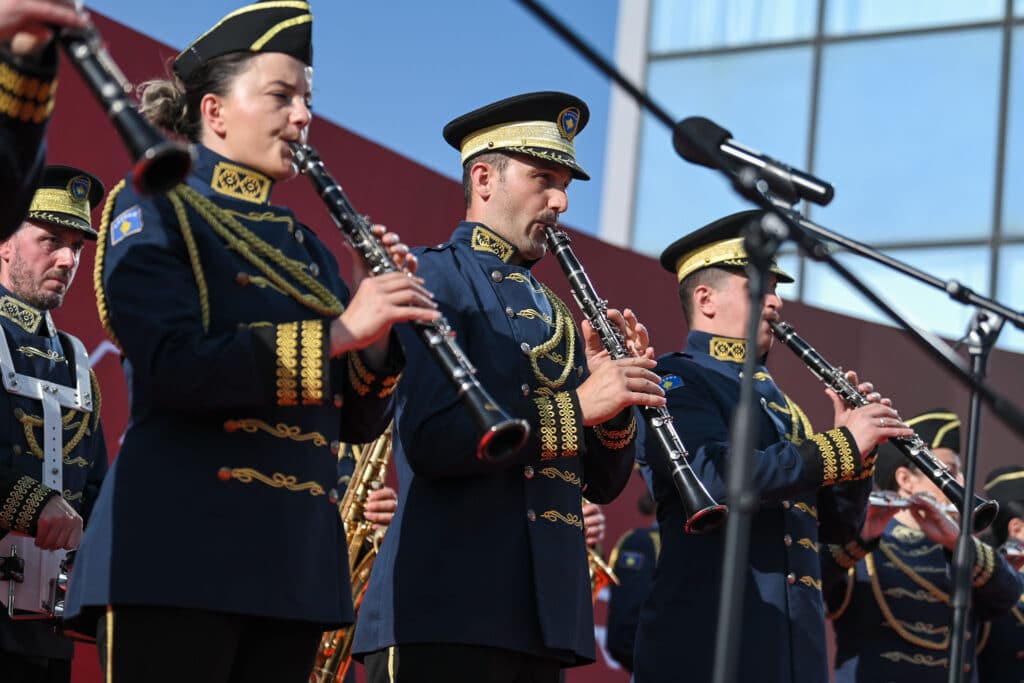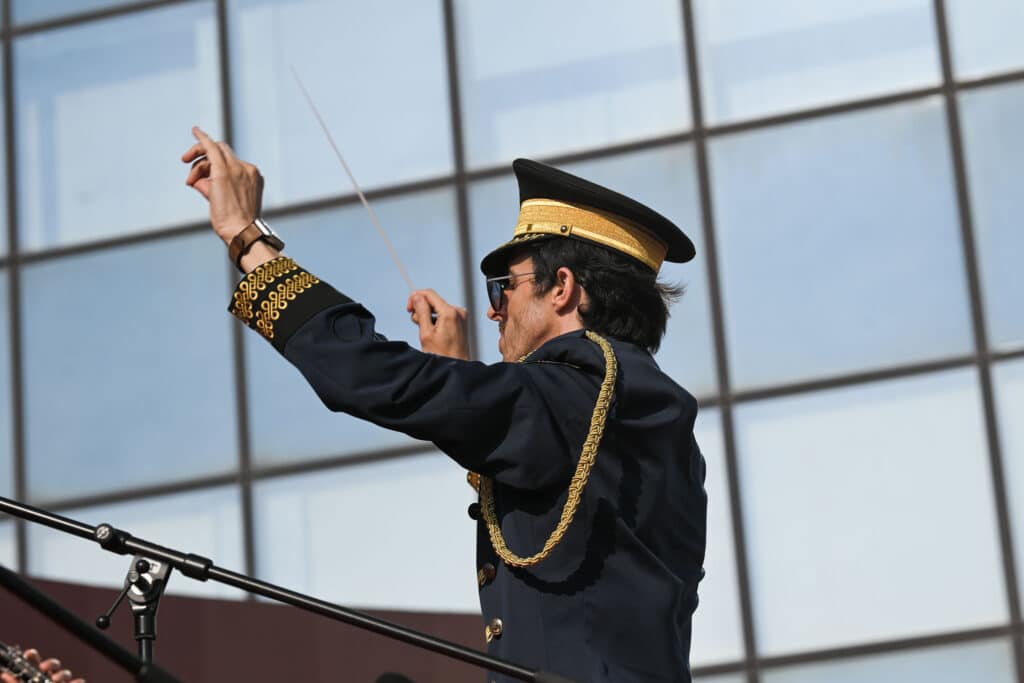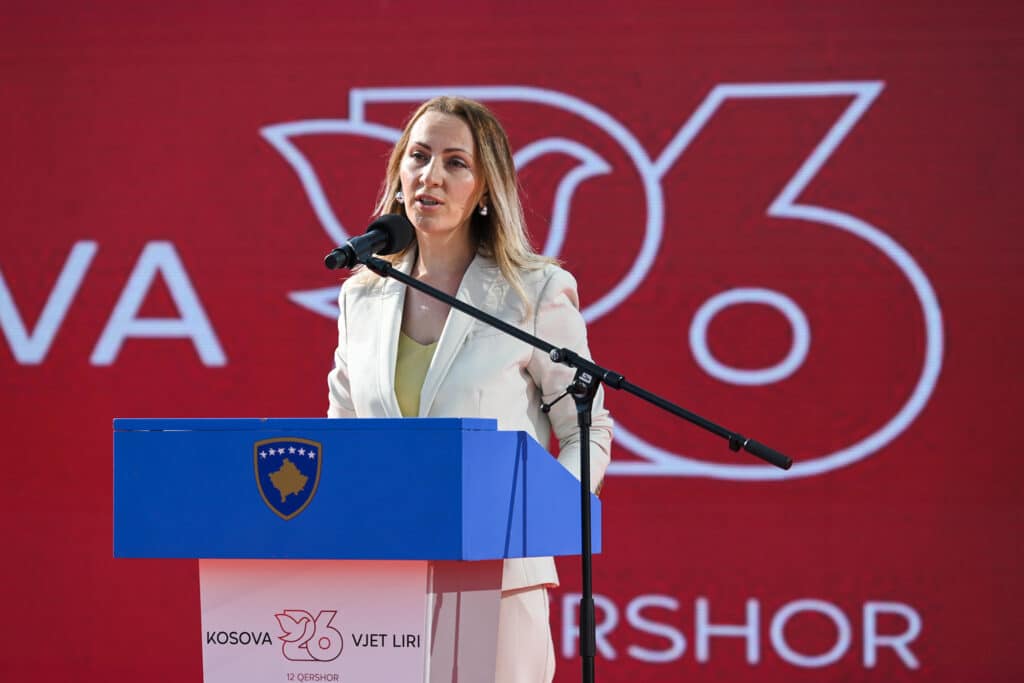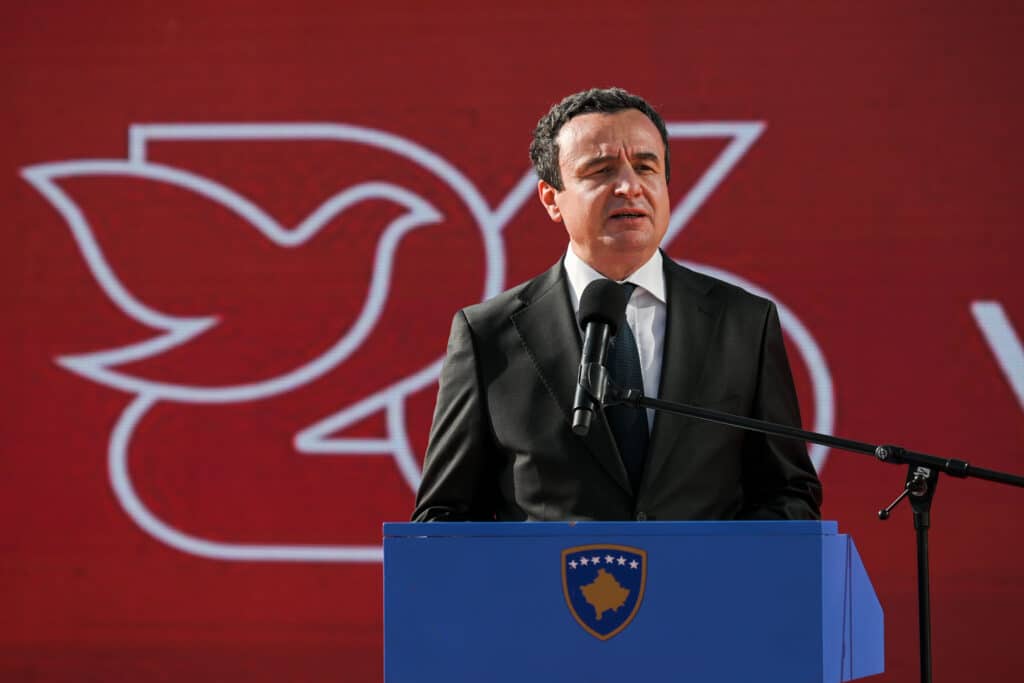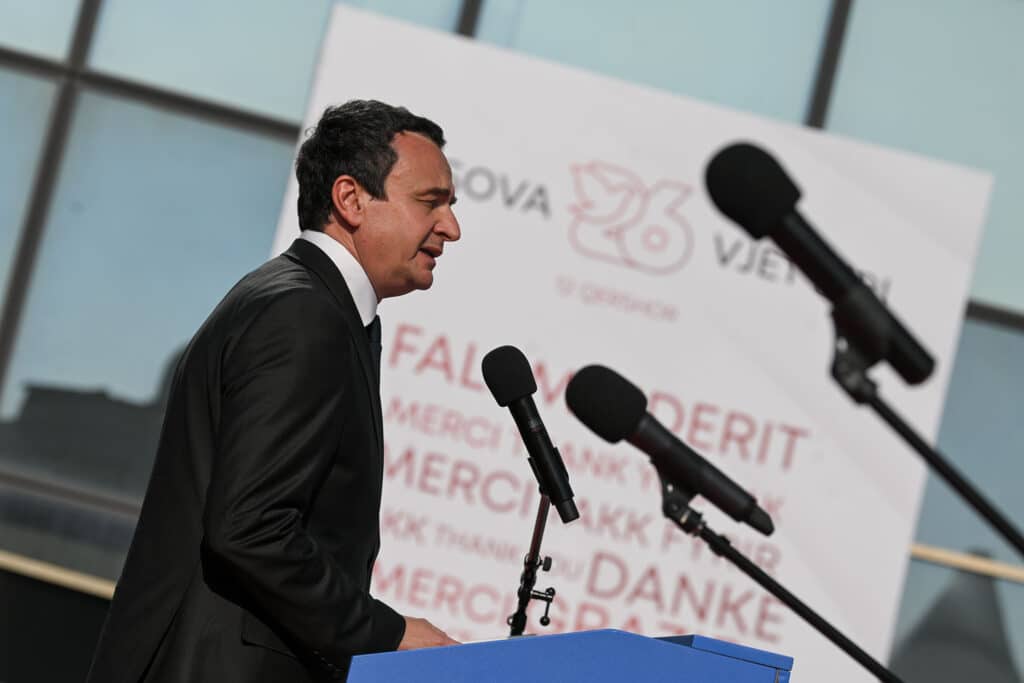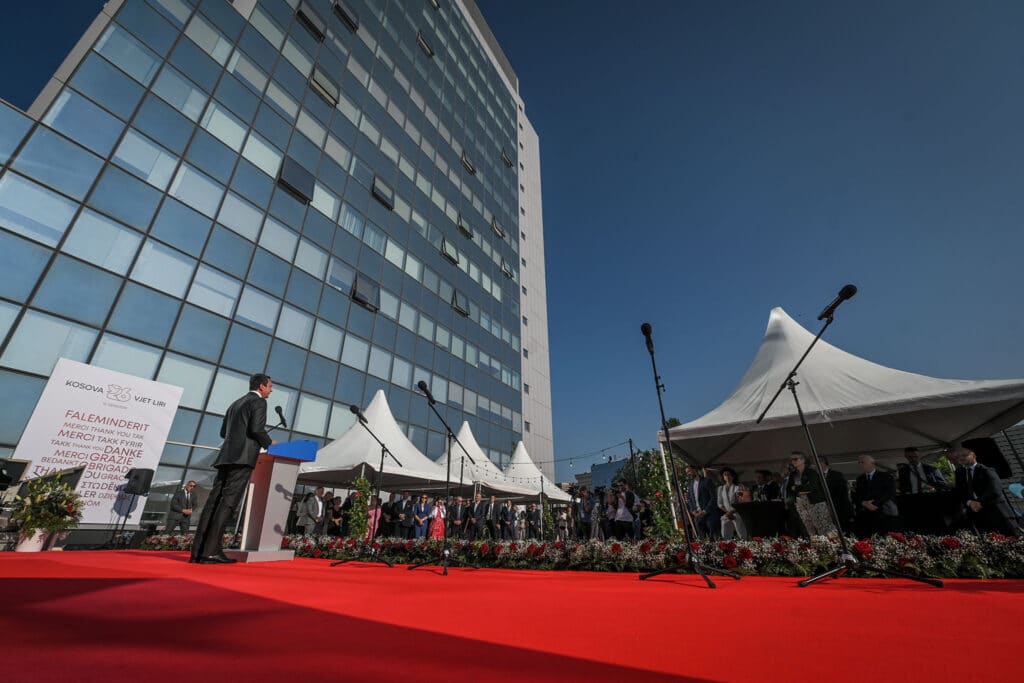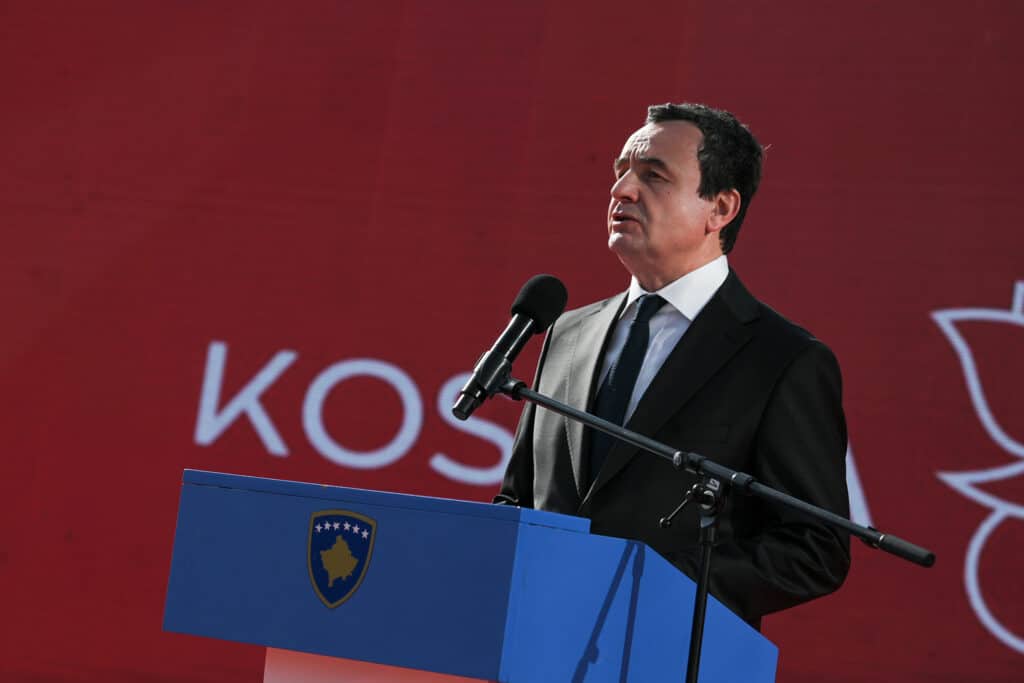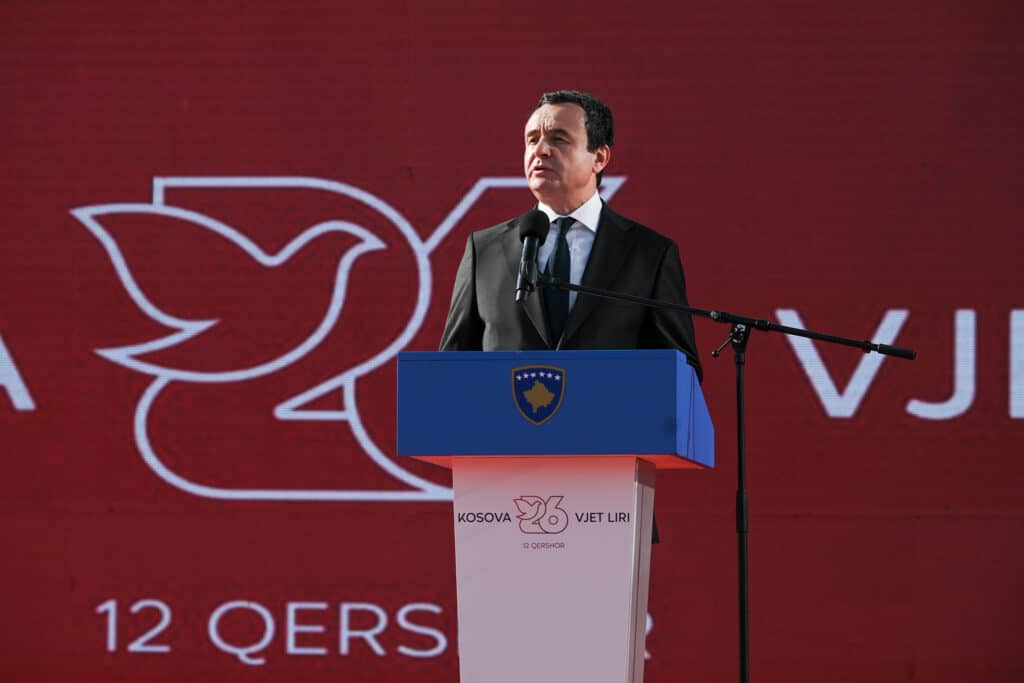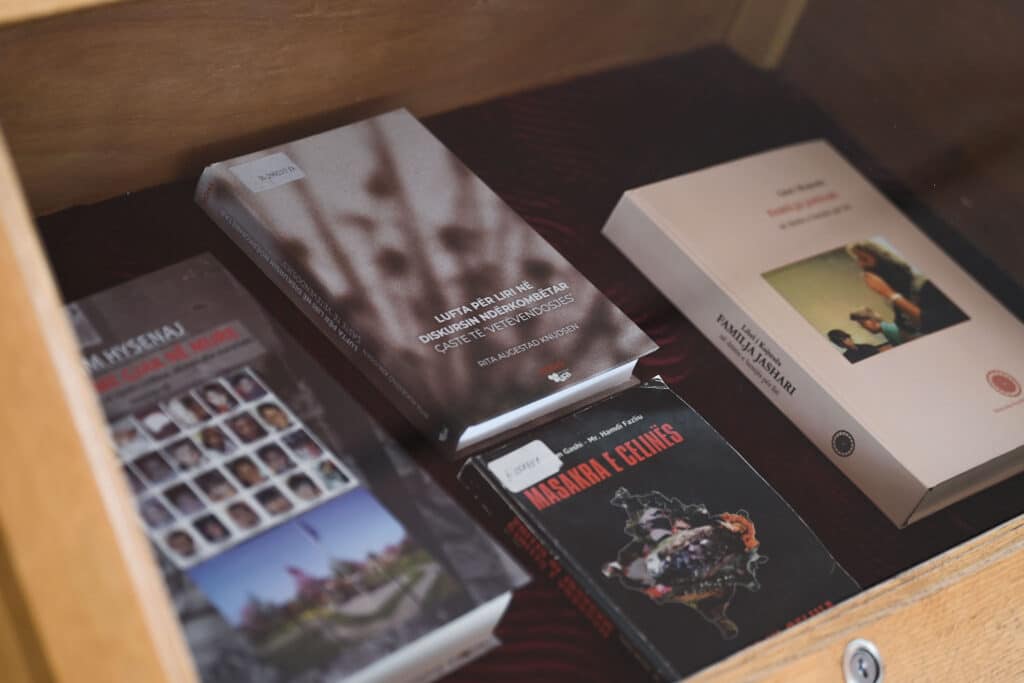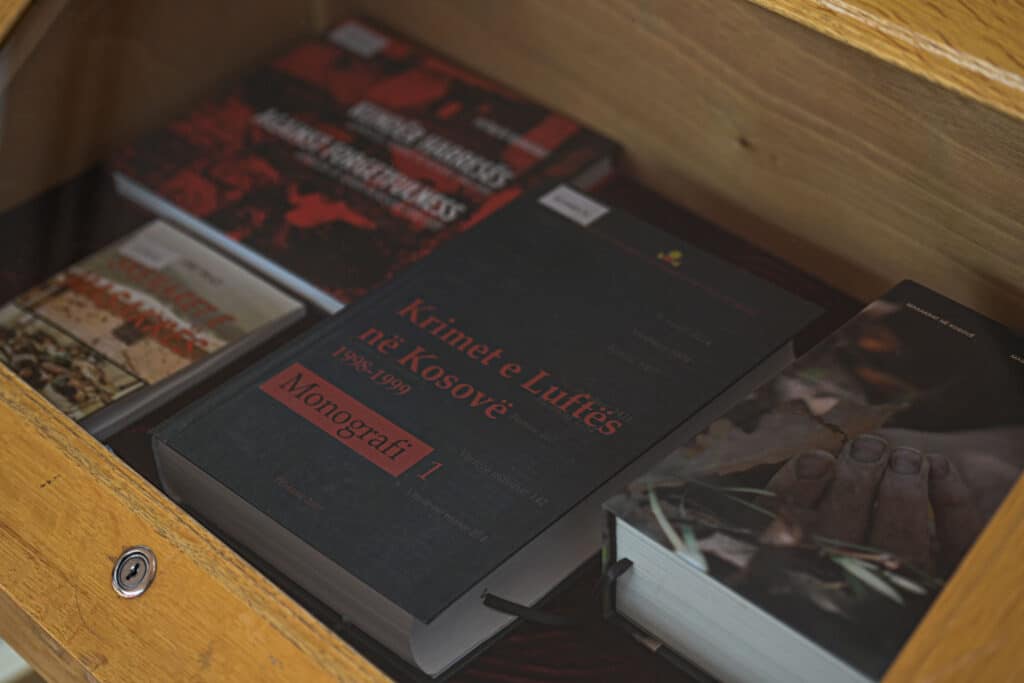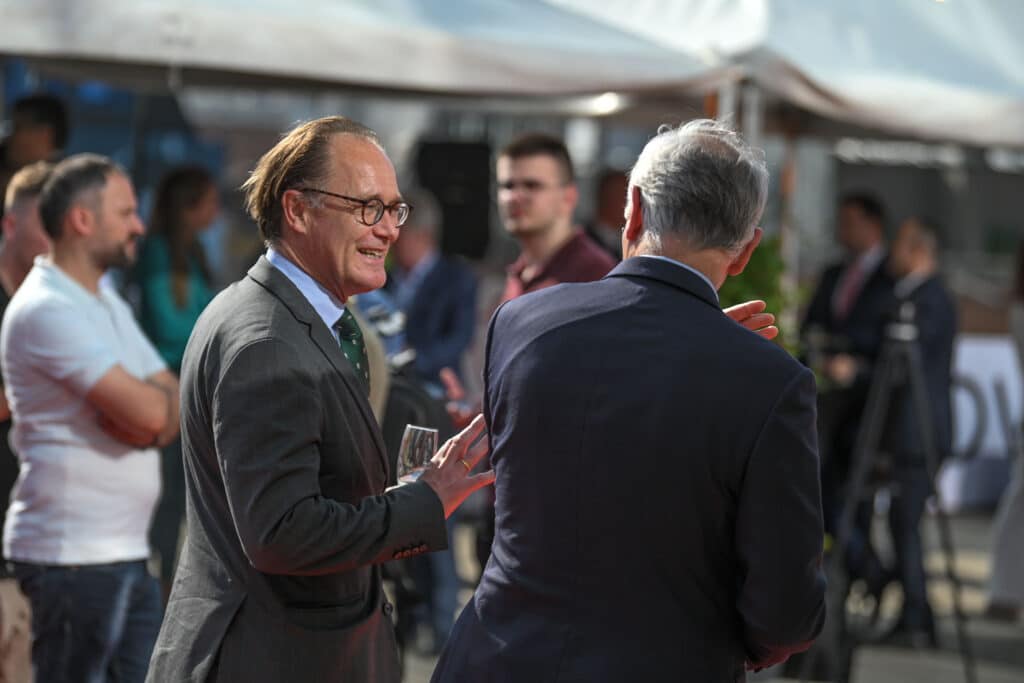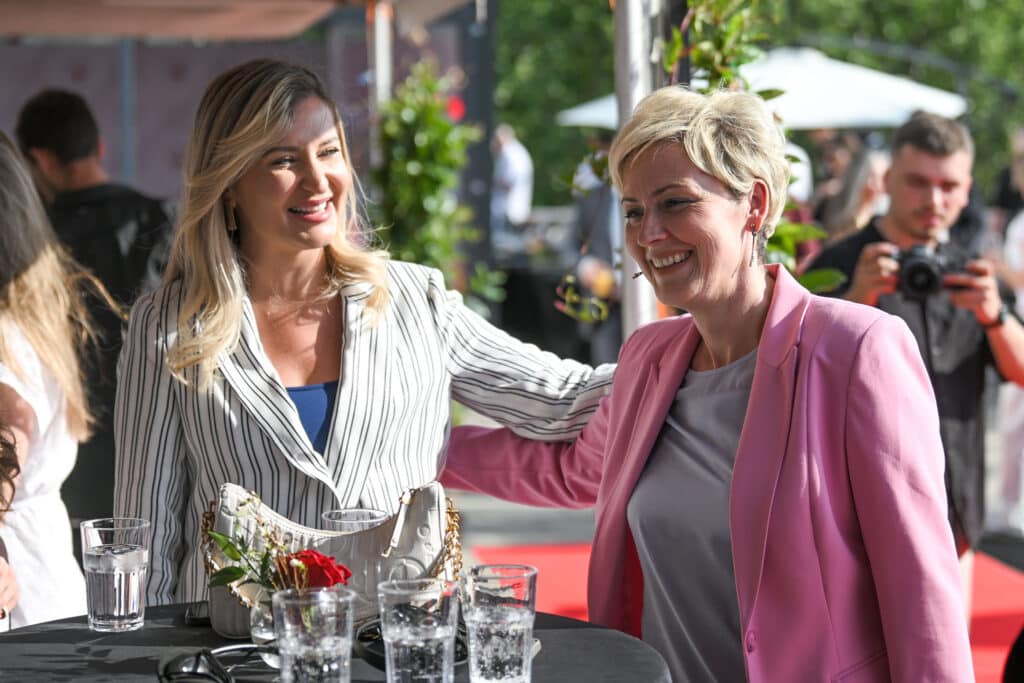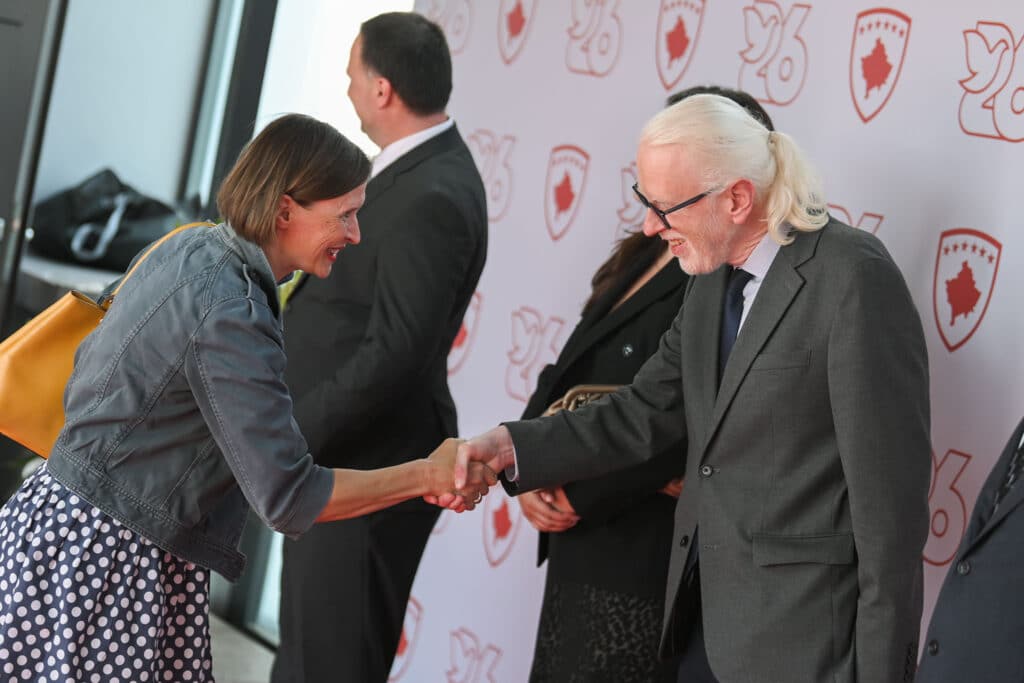Prishtina, 12 June 2025
Today, the Government of the Republic of Kosovo held a state reception to mark the 26th anniversary of the country’s liberation. The reception was attended by members of the government cabinet, members of parliament, mayors, senior leaders and officials of state institutions, ambassadors and representatives of diplomatic missions from Kosovo’s friendly states, members of the Jashari family, as well as political representatives of Albanians from Presheva, Medvegja, Bujanoc, and North Macedonia.
Full speech of Prime Minister Kurti:
Dear Deputy Prime Ministers of the Government of the Republic of Kosovo, Mr. Besnik Bislimi, Ms. Donika Gërvalla-Schwarz, Ms. Emilia Rexhepi,
Dear Members of Parliament, Ministers, and Deputy Ministers,
Dear Ambassadors and Representatives of Diplomatic Missions in Kosovo,
Dear Friends and Partners,
Distinguished Guests,
Ladies and Gentlemen,
We are gathered here today for this state reception, on Peace Day, marking the 26th anniversary of our liberation, which is rooted in the blood of the fallen.
With deep respect and humility, we honor the sacrifice of the martyrs, the fallen, the war-disabled, the veterans, and all the women and men who contributed to Kosovo’s liberation. In the spirit of their sacrifice, today and every day, we work with dedication for justice and equality, for progress with solidarity.
We recall the crucial international actions and decisions that enabled the arrival of international peacekeeping forces, KFOR, and the closure of a dark chapter in Kosovo’s history. As explained by the United Nations Special Envoy at the time, Martti Ahtisaari, in his book “Task in Belgrade”, the signing of the military agreement was a pivotal moment. It was signed by General Mike Jackson and guaranteed that Yugoslav and Serbian troops could no longer enter Kosovo without the authorization of the KFOR commander.
A particularly delicate diplomatic situation unfolded on 11 and 12 June 1999, when Russian troops entered Kosovo and took control of Prishtina Airport before NATO forces. This tense situation required high-level diplomacy, which led to the agreement reached on 18 June 1999 in Helsinki, establishing cooperation between Russian and NATO forces within KFOR.
Ahtisaari’s account of the airport seizure by Russian troops reveals just how great the risk was that newly-liberated Kosovo could be divided in two, along ethnic lines. According to Ahtisaari, Russia and the Yugoslav regime had, I quote from his book, “agreed that Russia would take control of Prishtina and the northern parts of Kosovo… If developments in Kosovo led to the Albanians declaring their independence within two or three years, Serbia, with the help of Russian troops, could hold on to a large part of it and colonize it solely with Serbs.”
All of this, again according to Ahtisaari, was aimed at enabling Serbia to take control of, I quote again, “the Trepça mines and the Zvečan smelter, as well as other processing enterprises near the Lower Ibar River.”
Fortunately, the Serbo-Russian plan for a violent occupation of the northern part of the country and the division of Kosovo in two failed in 1999. Unfortunately, however, that plan has not died completely. It continues to survive to this day at the highest levels of the regime in Belgrade. This has been clearly uncovered and documented by our security institutions following the terrorist attack of 24 September 2023, in which our police sergeant Afrim Bunjaku fell heroically.
We will never forget that the security of our country, our territory, and our people—regardless of background—cannot be taken for granted. It requires constant commitment from our state institutions, in close cooperation with NATO and our international allies.
On this day, we reaffirm our steadfast commitment to lasting peace and continuous progress. A peace based on equal development for every citizen, regardless of ethnicity or nationality, religion or gender.
Our Kosovo, our Republic, is a land of courage, of hope, and of European perspective. That is why we will continue to work together—hard and well—so that our freedom is complete, and that future generations will never have to live through what we endured.
To the 19 NATO member states that intervened back then to stop Serbia’s crimes, we extend our heartfelt gratitude—expressed in each of their languages, as shown on the banner of this ceremony!
Today, NATO has 32 member states, and we aspire to become the 33rd, to contribute to democratic peace and Western security. We have proven our capabilities and readiness most recently in Defender Europe 25.
Proud of what we have achieved as a people and a state, we remember with gratitude those who gave everything for our Republic and we commit together to its bright future.
Happy Peace Day!
Happy 26th Anniversary of Kosovo’s Liberation!
Thank you!
